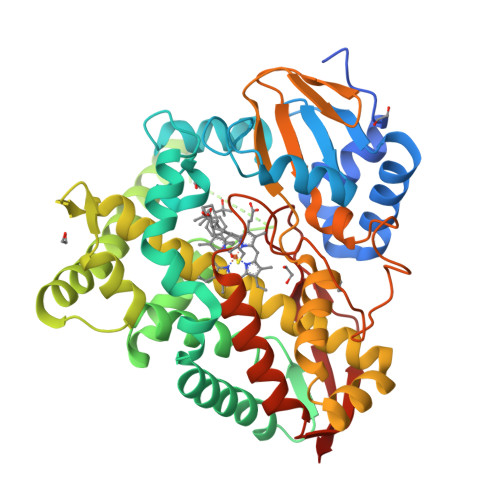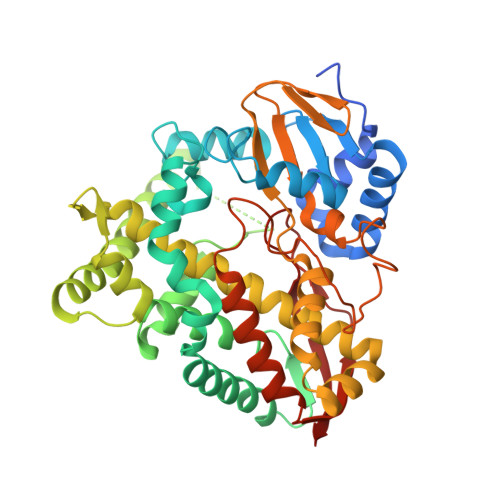Cooperative Substrate Binding Controls Catalysis in Bacterial Cytochrome P450terp (CYP108A1).
Gable, J.A., Poulos, T.L., Follmer, A.H.(2023) J Am Chem Soc
- PubMed: 36779970
- DOI: https://doi.org/10.1021/jacs.2c12388
- Primary Citation of Related Structures:
8EUH, 8EUK, 8EUL - PubMed Abstract:
Despite being one of the most well-studied aspects of cytochrome P450 chemistry, important questions remain regarding the nature and ubiquity of allosteric regulation of catalysis. The crystal structure of a bacterial P450, P450terp, in the presence of substrate reveals two binding sites, one above the heme in position for regioselective hydroxylation and another in the substrate access channel. Unlike many bacterial P450s, P450terp does not exhibit an open to closed conformational change when substrate binds; instead, P450terp uses the second substrate molecule to hold the first substrate molecule in position for catalysis. Spectral titrations clearly show that substrate binding to P450terp is cooperative with a Hill coefficient of 1.4 and is supported by isothermal titration calorimetry. The importance of the allosteric site was explored by a series of mutations that weaken the second site and that help hold the first substrate in position for proper catalysis. We further measured the coupling efficiency of both the wild-type (WT) enzyme and the mutant enzymes. While the WT enzyme exhibits 97% efficiency, each of the variants showed lower catalytic efficiency. Additionally, the variants show decreased spin shifts upon binding of substrate. These results are the first clear example of positive homotropic allostery in a class 1 bacterial P450 with its natural substrate. Combined with our recent results from P450cam showing complex substrate allostery and conformational dynamics, our present study with P450terp indicates that bacterial P450s may not be as simple as once thought and share complex substrate binding properties usually associated with only mammalian P450s.
Organizational Affiliation:
Departments of Chemistry, University of California, Irvine, Irvine, California 92697-3900, United States.





















